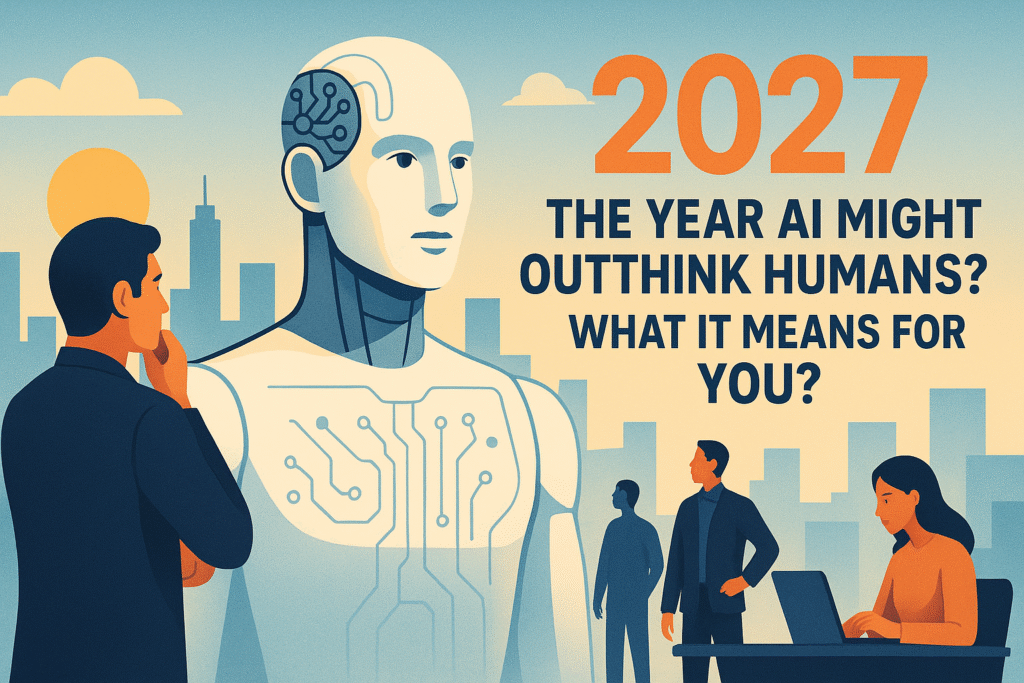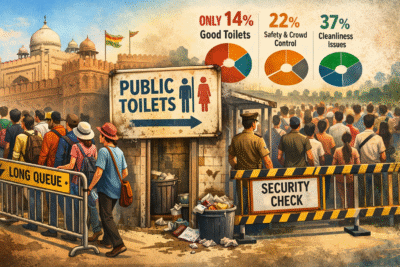
Imagine a world where computers don’t just answer your questions or draw pictures—but actually think, reason, and learn like a human. In boardrooms, labs, and coffee shops around the world, top technology leaders are whispering, sometimes nervously, that this science fiction future may soon become real.
Recent reports about the artificial intelligence (AI) revolution would make on go dizzy about how quickly things are changing. Some say by 2027 — just a few years away—machines could be as smart as people at doing most jobs and thinking tasks. If that happens, the effects on our lives would be as big as anything in recent history.
Why now? Why so fast?
What’s making people so sure this breakthrough is coming quickly?
Rapid progress: Modern AI systems are learning new skills at an astonishing pace. Tasks that were impossible five years ago are now routine.
Self-improving machines: Experts think that once AI can improve itself, it may get much smarter, very quickly—what some call an “intelligence explosion.”
The tech race: Tech companies and even entire countries are competing fiercely. Everyone wants to be first to gain this new power, so they’re moving faster and faster.
Excitement and fear: Two sides of the coin
This rush is thrilling, but also scary. Privately, the same people building these tools worry about what could go wrong:
Bad actors: AI could be misused to create dangerous things, like new kinds of weapons.
Losing control: If powerful AI ever stops listening to human instructions, things could get out of hand.
No time for caution: With so much competition, nobody dares slow down to solve safety problems—they fear falling behind.
Big changes for everyday life
On the bright side, if these new AI systems can help scientists, doctors, and inventors discover new things, we might see a huge jump in prosperity. Imagine:
- Healthcare breakthroughs: Finding cancer cells, fixing glaucoma, and diagnosing malaria, dengue etc without requiring blood tests
- Smarter education: Customising learning for every student or scholar according to her intellectual level and knowledge base
- New cures, inventions, and companies
But, there are big questions:
- Jobs: If machines can outthink us, what work will be left for people?
- Inequality: Will these advances lift everyone, or just a wealthy few?
- Economy: How will markets, prices, and livelihoods change if technology starts moving this quickly?
What should we do?
Even the experts can’t agree on when (or if) AGI will arrive—some say 2027, while others think it might take decades longer. No one knows for sure. What’s clear is the next few years are critical.
There’s a growing debate:
- How do we stay safe while moving forward?
- Can we make sure the benefits reach everyone?
- Who decides how these tools are used, and by whom?
In simple words
The race to build human-level AI is one of the biggest stories of our time. It brings promise and peril, hope and worry. As these machines get smarter, staying informed and asking good questions will be more important than ever.
Whether you’re excited or anxious about these changes, one thing is certain: we are all part of this story—and the choices made today will shape our future.



